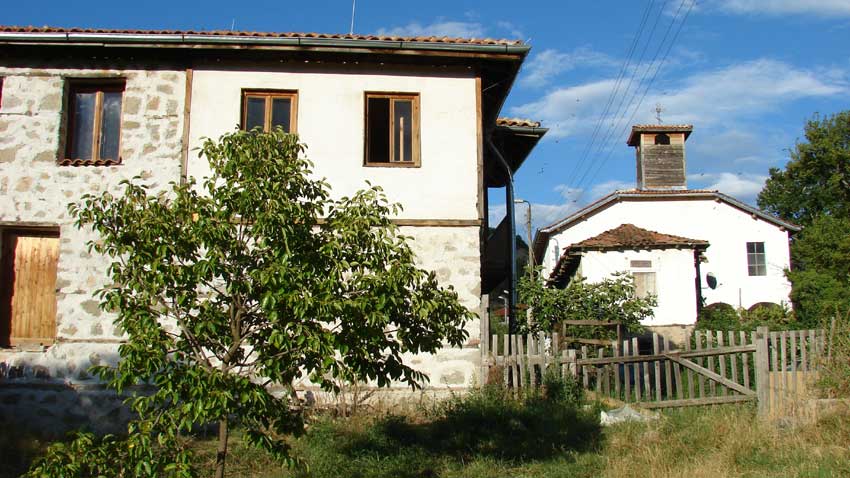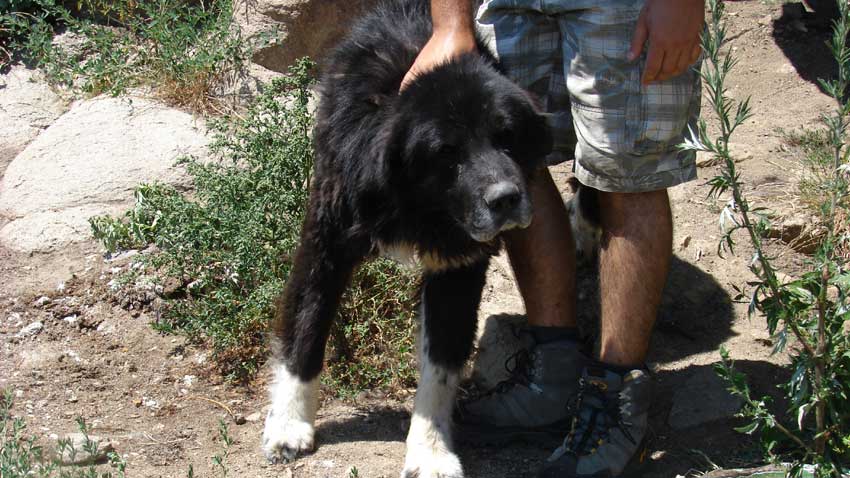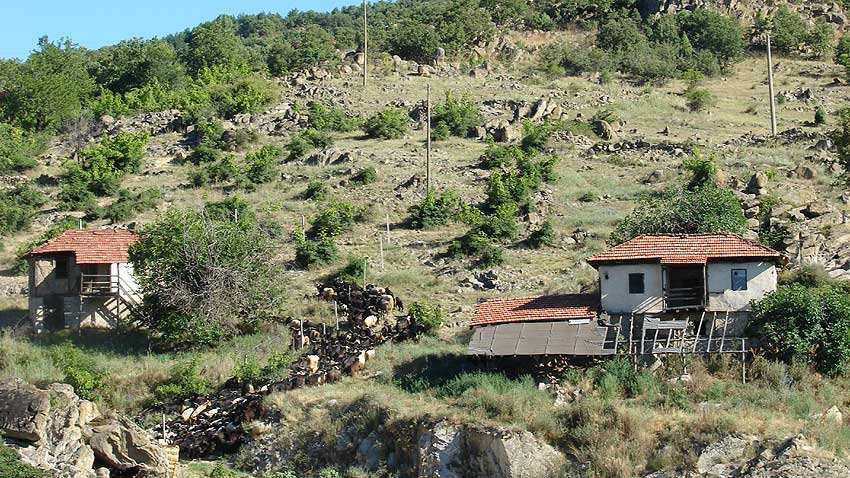 12
12
The village of Vlahi lies in the heart of Pirin National Park. Whereas a century ago the village had a population of 2,000, now it has just two inhabitants – Granny Kira and Grandpa Mite. The warm climate and the abundant biological diversity are two of the reasons why a dozen odd characters have “flown in” from the big city in recent years. But they are not mere adventurers or nature conservationists, to them a sustainable future is a matter of choice.
 In 2003, the Cooperation for Voluntary Service, Bulgaria bought the village’s derelict school building at auction. Mindful of nature, volunteers from Bulgaria and abroad put in a great deal of effort into renovating the building, using only natural materials such as wood, clay for bricks, extracted from the surrounding area etc. Now, the Nature School is an environmental centre with long-term initiatives, where children and adults alike learn to live in harmony with nature. A mere 48 hours here suffice to learn traditional gardening and stockbreeding methods, to discover the power of herbs, spices and mushrooms, to be given useful tips for energy efficiency, water purification etc.
In 2003, the Cooperation for Voluntary Service, Bulgaria bought the village’s derelict school building at auction. Mindful of nature, volunteers from Bulgaria and abroad put in a great deal of effort into renovating the building, using only natural materials such as wood, clay for bricks, extracted from the surrounding area etc. Now, the Nature School is an environmental centre with long-term initiatives, where children and adults alike learn to live in harmony with nature. A mere 48 hours here suffice to learn traditional gardening and stockbreeding methods, to discover the power of herbs, spices and mushrooms, to be given useful tips for energy efficiency, water purification etc.
 In this Internet-free village, the only thing that can disturb the peace is the thunderous bark of the Karakachan dogs (a local breed). These mountain “lions” guard the flock of Karakachan sheep and Kalofer longhaired goats as well as the Karakachan horses kept by a young family who came to settle here from the big city. They have spent the past 15 years finding and breeding old species on the verge of extinction, as part of the efforts of the Bulgaria Biodiversity Society Semperviva.
In this Internet-free village, the only thing that can disturb the peace is the thunderous bark of the Karakachan dogs (a local breed). These mountain “lions” guard the flock of Karakachan sheep and Kalofer longhaired goats as well as the Karakachan horses kept by a young family who came to settle here from the big city. They have spent the past 15 years finding and breeding old species on the verge of extinction, as part of the efforts of the Bulgaria Biodiversity Society Semperviva.
 Under a research project, they have also been adopting large predators from zoos or hunting associations. The animals are accustomed to humans and would not survive in the wild, so they are raised in spacious enclosures under conditions closely resembling their natural habitats. That was how Vlahi came to be home to the bears Medo and Masha and the wolf Baito. Accompanied by the project’s coordinator, visitors can get a close view of these magnificent animals. And when young Masha stands on her hind legs to get a closer look at you and you gaze into her eyes, you will surely want to give her a hug. Visits to the wild animals are free, but if you wish to you may make a donation for their upkeep. The Balkans Wildlife Society has set up a centre where an interactive exposition acquaints guests with the origin and life of large predators.
Under a research project, they have also been adopting large predators from zoos or hunting associations. The animals are accustomed to humans and would not survive in the wild, so they are raised in spacious enclosures under conditions closely resembling their natural habitats. That was how Vlahi came to be home to the bears Medo and Masha and the wolf Baito. Accompanied by the project’s coordinator, visitors can get a close view of these magnificent animals. And when young Masha stands on her hind legs to get a closer look at you and you gaze into her eyes, you will surely want to give her a hug. Visits to the wild animals are free, but if you wish to you may make a donation for their upkeep. The Balkans Wildlife Society has set up a centre where an interactive exposition acquaints guests with the origin and life of large predators.
A trail leads up to Vlahinskoto Pruskalo – the waterfall of Vlahi - whose crystal-clear mountain water crashes down 25 meters. The breathtaking pristine nature beckons – an 8-hour trek from the village will take you to Baba peak and from there – to Sinanitsa lodge.
Vlahi village is easy of access – it is about a 30-minute drive from the town of Kresna on an asphalt road. But the return journey may be longer… Having breathed in the fragrance of wild mint, tasted fresh goat cheese and felt the warm hospitality of the village’s new inhabitants, you may well feel the need to take the next step towards sustainable living in the wild.
English version: Milena Daynova
Photos: Maria Peeva
Applications can be submitted to the Bulgarian Cultural and Educational Centre in Scotland, First Bulgarian School "Nadejda Stancioff - Lady Muir” in Edinburgh for a new course for adults - Bulgarian for beginners. Classes start at 6-7 PM on..
Before leaving this world, Pope Francis chose "Migrants, missionaries of hope" to be the theme of this year's World Day of Migrants and Refugees, which the Catholic Church marks on 4-5 October 2025 . "With these words,..
In Argentine Patagonia, the city of Comodoro Rivadavia preserves the history of Bulgarian settlers, whose descendants still carry Bulgaria in their hearts today. Among them is Tzenka Guenova, who was born in Troyan, but arrived in..
U.S. sanctions on NIS activated despite expectations of delay U.S. sanctions on Serbian oil company NIS – Naftna Industrija Srbije came into force on..
The second edition of the unique Blackthorn Festival will be held today in the village of Salash near Belogradchik, northeastern Bulgaria. The event..
The Earth and Man National Museum in Sofia is hosting the 33rd Sofia Exhibition of Minerals, Gemstones and Fossils , the institution announced. The..

+359 2 9336 661
